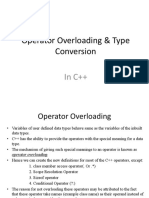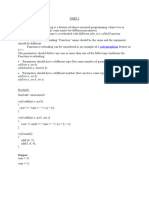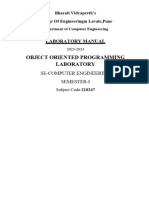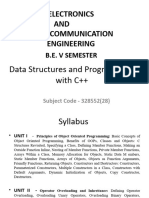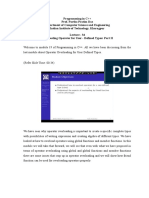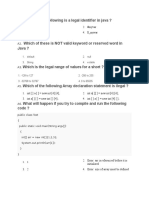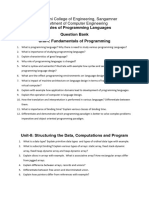0% found this document useful (0 votes)
81 views19 pagesCh-3.Function + Operator Overloading
1. The CLOCK class implements a clock with hours, minutes, and seconds data members. It overloads the + and - operators to add or subtract two clock objects.
2. The print() member function formats the clock time as hh:mm:ss, mm:ss, or ss depending on the values of hours and minutes.
3. In main(), clock objects are created, added, subtracted, and printed to test the class.
Uploaded by
Ghost ReconCopyright
© © All Rights Reserved
We take content rights seriously. If you suspect this is your content, claim it here.
Available Formats
Download as PPT, PDF, TXT or read online on Scribd
0% found this document useful (0 votes)
81 views19 pagesCh-3.Function + Operator Overloading
1. The CLOCK class implements a clock with hours, minutes, and seconds data members. It overloads the + and - operators to add or subtract two clock objects.
2. The print() member function formats the clock time as hh:mm:ss, mm:ss, or ss depending on the values of hours and minutes.
3. In main(), clock objects are created, added, subtracted, and printed to test the class.
Uploaded by
Ghost ReconCopyright
© © All Rights Reserved
We take content rights seriously. If you suspect this is your content, claim it here.
Available Formats
Download as PPT, PDF, TXT or read online on Scribd
/ 19



